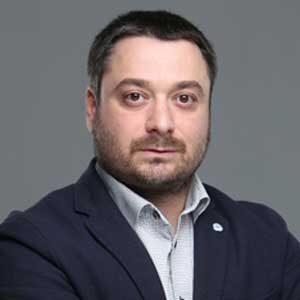Why did you choose to work on open parliament? What are the most important open parliament issues that you tackle through your work?
We, IDFI, strongly believe that the strongest pillar for developing democracy and human rights are legislative branches of government. By legislative branch, we not only mean Parliaments but local representative bodies too. We decided to work actively with both central and local legislative bodies which are elected through direct elections, and therefore, these legislative bodies have to concentrate on the needs of citizens including implementing effective control on executive governments. At the same time, collaboration with legislative divisions also covers awareness raising activities for citizens on different ways of participation in governance processes, and monitors public officials involved in legislative activities. In developing countries, citizens have low interest in participatory democracy, therefore, civil society has to actively work with parliaments and municipalities, and with citizens at the same time. This approach is more difficult but has sustainable and long-lasting effects.
What are the key lessons that you have learnt through your experience working on open parliament at the national level?
To summarize the experience that we have gained through these years of cooperation with the Parliament of Georgia, first of all, I can say that the process of working on the Open Parliament is free from political discourses and focuses solely on active collaboration and on implementation of OGP principles. Probably, this is one of the rarest examples in Georgia when representatives of different political parties can cohabitate and co-operate. Secondly, Georgia became one of the leaders in Parliamentary Openness with focusing on such aspects as transparency, participation, and technology and innovations. Thirdly, Parliament of Georgia created the Open Governance Permanent Parliamentary Council which comprises the Members of the Parliament and representatives of the non-governmental sector. Parliament of Georgia is widely known for actively working together with the civil society. Several years ago, Parliament of Georgia received the OGP Champions Award for the best collaboration process with the civil society during the elaboration of the Open Parliament Action Plan. I believe that only active involvement of society in parliamentary activities makes parliament truly open. From Georgian experience, it is very important to have donor involvement and support in this process, because Parliaments are more eager for international cooperation and when there is donor support, parliaments are more serious and committed towards their OGP obligations. Lastly, civil society should have a clearly organized advocacy strategy to push actively for achieving the necessary results, otherwise the process will be stalled or jammed for indefinite time.
What were the greatest achievements of the national open parliament process? What are your expectations regarding the work currently taking place?
Probably the greatest achievement was officially adopting the First Open Parliament Action Plan (2015-2016). It was a new and exciting process! Creation of the Open Governance Permanent Parliamentary Council was also very important because it made the collaboration process with the parliament sustainable. Receiving the OGP Champions Award was an extraordinary feeling, it marked our international recognition. We think and hope that the Parliament of Georgia will actively continue to take bold steps towards parliamentary openness and increase the implementation of the new technologies to make the parliamentary activities widely available to citizens.

